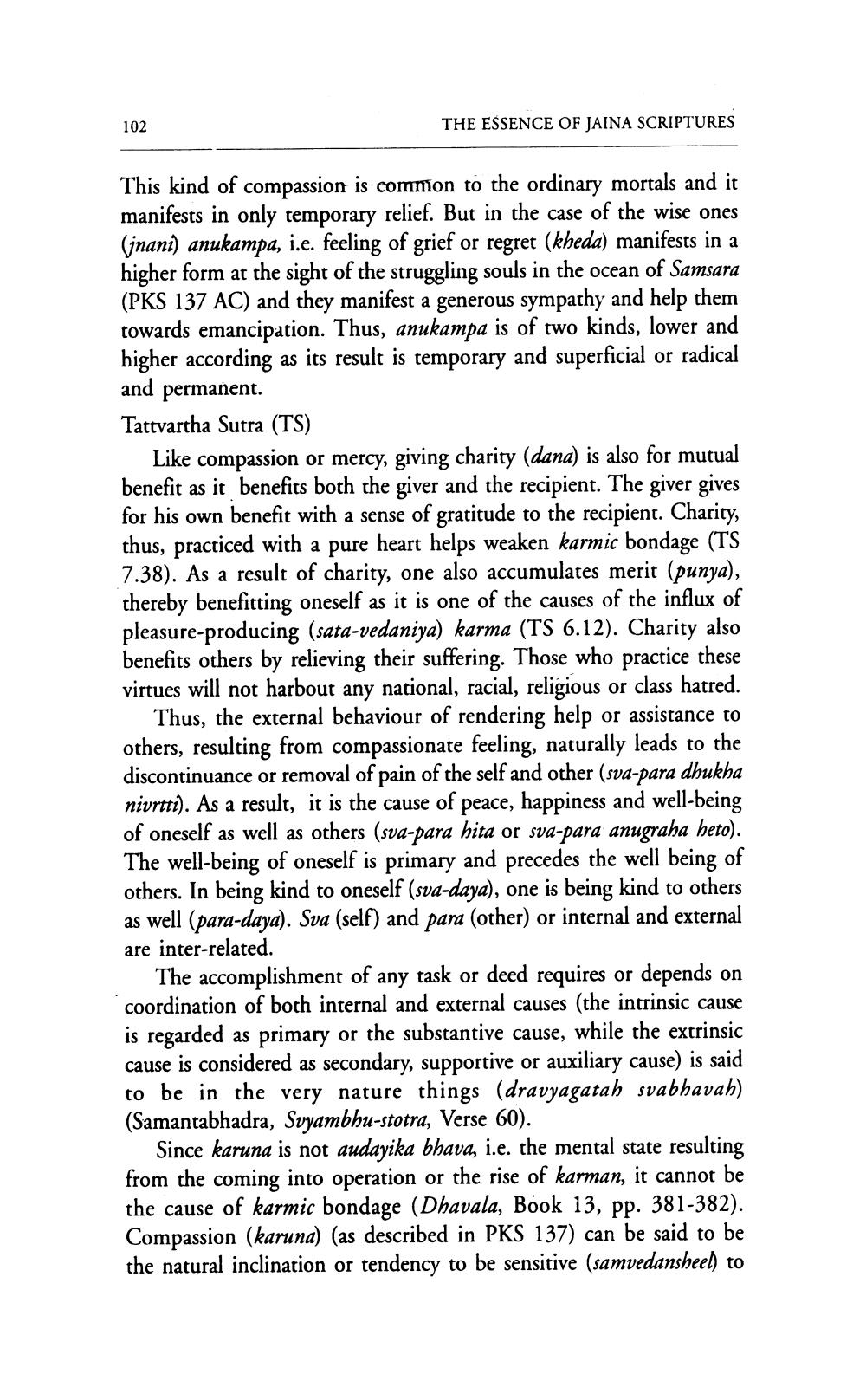________________
102
THE ESSENCE OF JAINA SCRIPTURES
This kind of compassion is common to the ordinary mortals and it manifests in only temporary relief. But in the case of the wise ones (jnani) anukampa, i.e. feeling of grief or regret (kheda) manifests in a higher form at the sight of the struggling souls in the ocean of Samsara (PKS 137 AC) and they manifest a generous sympathy and help them towards emancipation. Thus, anukampa is of two kinds, lower and higher according as its result is temporary and superficial or radical and permanent. Tattvartha Sutra (TS)
Like compassion or mercy, giving charity (dana) is also for mutual benefit as it benefits both the giver and the recipient. The giver gives for his own benefit with a sense of gratitude to the recipient. Charity, thus, practiced with a pure heart helps weaken karmic bondage (TS 7.38). As a result of charity, one also accumulates merit (punya), thereby benefitting oneself as it is one of the causes of the influx of pleasure-producing (sata-vedaniya) karma (TS 6.12). Charity also benefits others by relieving their suffering. Those who practice these virtues will not harbout any national, racial, religious or class hatred.
Thus, the external behaviour of rendering help or assistance to others, resulting from compassionate feeling, naturally leads to the discontinuance or removal of pain of the self and other (sva-para dhukha nivrtti). As a result, it is the cause of peace, happiness and well-being of oneself as well as others (sva-para hita or sva-para anugraha heto). The well-being of oneself is primary and precedes the well being of others. In being kind to oneself (sva-daya), one is being kind to others as well (para-daya). Sva (self) and para (other) or internal and external are inter-related.
The accomplishment of any task or deed requires or depends on coordination of both internal and external causes (the intrinsic cause is regarded as primary or the substantive cause, while the extrinsic cause is considered as secondary, supportive or auxiliary cause) is said to be in the very nature things (dravyagatah svabhavah) (Samantabhadra, Svyambhu-stotra, Verse 60).
Since karuna is not audayika bhava, i.e. the mental state resulting from the coming into operation or the rise of karman, it cannot be the cause of karmic bondage (Dhavala, Book 13, pp. 381-382). Compassion (karuna) (as described in PKS 137) can be said to be the natural inclination or tendency to be sensitive (samvedansheel) to




